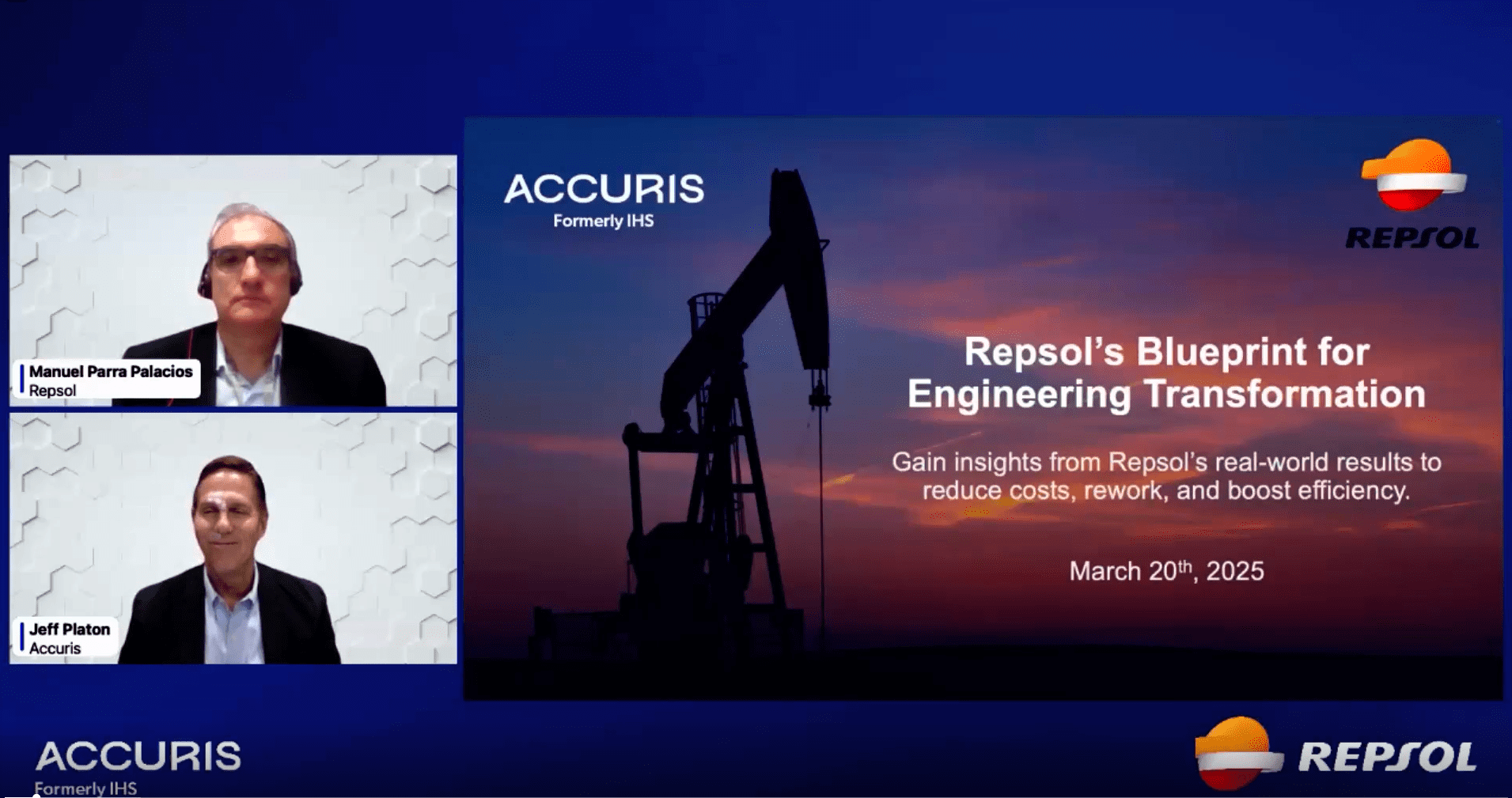Engineering Digital Transformation: How Repsol Took Control of Complexity
As part of our ongoing Forrester Webinar Series, we had the opportunity to hear from Manuel Parra Palacios, Content & Data Specialist and Business Intelligence Analyst at Repsol. In this session, Repsol’s Blueprint for Engineering Transformation, Manuel detailed the company’s journey toward smarter, more connected engineering operations—powered by digitization, digital platforms, digital tools, and modern standards management.
Repsol, a global multi-energy provider, operates in a highly complex and regulated industry. With technical information dispersed across departments and formats, their engineering teams faced growing challenges around consistency, accessibility, and efficiency. Manuel shared how Repsol confronted these obstacles head-on by adopting our digitized standards management platform—a shift that is now transforming how their teams work, share knowledge, and maintain compliance.
As Manuel put it, “We have to be very sure about the information we use, because information is not just information—in fact, it is the seed for the process of making decisions.” In a fast-evolving industry, trustworthy, structured content is critical for confident decision-making.
Key Takeaways from Repsol’s Engineering Digital Transformation Webinar
From Fragmentation to Integration with Digital Platforms
Repsol works with a variety of systems and siloed documentation across technical departments. With several hundred or sometimes thousand technical standards in use, engineers often spend valuable time searching for the right version of a document or duplicating efforts. By consolidating these materials into a single, digitized platform, Repsol created one source of truth—making it significantly easier to access up-to-date standards and reduce inefficiencies. This consolidation helps address content challenges such as unstructured content and inconsistent metadata, and is a crucial step in process optimization.
“Standards are not just documents,” Manuel explained. “They capture lessons learned… and we translate these into decisions for us.” This insight reflects how digitized standards can evolve from passive resources into active enablers of decision-making and operational readiness.
Enabling Cross-Team Collaboration
The move to a centralized system also broke down barriers between teams. Manuel highlighted how different teams can now access and contribute to shared content in real time, fostering better collaboration and reducing communication bottlenecks. This not only improves productivity but also helps align engineering decisions with broader organizational goals.
Real Results, Real Efficiency through Engineering Workbench
Since implementing Engineering Workbench, Repsol has seen tangible improvements across multiple dimensions. Engineers now spend less time searching for documents and more time applying them. Rework has decreased, audit readiness has improved, and the overall speed of engineering processes has accelerated. These changes are not just incremental—they represent a significant shift in how Repsol approaches innovation and operational agility.
Manuel underscored this value when he said, “We are in 33 countries in the world… There are people in the jungle, people in the desert. They have to access information at the right time to reduce risk—to reduce any health and safety problem or incidents… This is not just faster—it’s more agile and safer. And of course, scalable for new facilities and new processes.” This level of accessibility is key to both speed and safety.
A Scalable Blueprint for Engineering Digital Transformation
Manuel’s story is a powerful reminder that engineering transformation doesn’t have to start with massive system overhauls. Instead, focusing on smarter content management, collaboration, and governance can unlock real value—quickly and sustainably. Fostering a culture of continuous learning within teams is crucial for improving skill sets, adapting to new technologies, and enhancing overall organizational effectiveness.
Whether you’re at the start of your digital transformation journey or looking to scale your efforts, Repsol’s experience offers a blueprint for success. Optimizing operational processes is essential for aligning resources and maximizing efficiency, ensuring sustainable transformation.
Watch the Full Webinar Recording
See how Repsol modernized its engineering operations—and discover how your organization can do the same.

